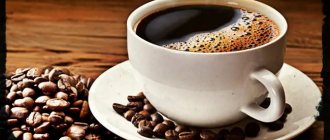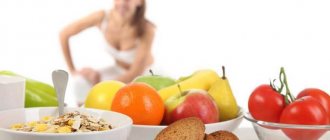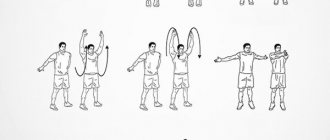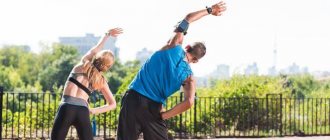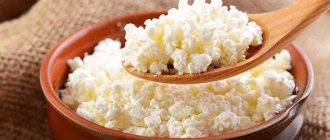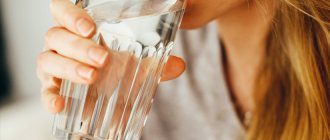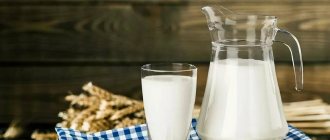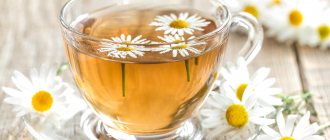Professional trainers and nutritionists say that drinking before going to the gym is mandatory. This is due to the fact that during exercise the athlete sweats a lot, and this threatens dehydration.
Lack of fluid in the body reduces muscle strength, accuracy and balance, and these are the main components of a quality workout.
The choice of drinks is large: water, isotonic drinks, tea, coffee, caffeine-based drinks, juices, sodas, etc. For classes to be effective, you need to choose the right liquid and know which drinks are best to avoid.
What drink is suitable for starting exercise in the gym?
Pre-workout drinks should be chosen depending on the results the athlete wants to achieve. The safest and healthiest liquids include water, green tea, and isotonic drinks (sports energy drinks with minerals and carbohydrates).
Carefully! Sports doctors remind that dehydration (water deficiency) should not be allowed during sports. This is fraught with a decrease in activity, a decrease in performance, in addition, there is a risk of overheating and heat stroke.
To maintain moisture balance in the body
To maintain health, you need to drink enough still water. This is an important condition for achieving comfort, increasing performance and physiological safety.
The longer the classes, the more fluid you need to drink.
Adherents of strength training can drink isotonics, which also normalize the water-salt balance. If an athlete exercises for more than 5-6 hours, then he needs a complex sports drink with electrolytes.
For fat burning and weight loss
Experts highlight the following cocktails that help speed up metabolic processes for burning fat:
- Detox cocktails are mainly vegetable juices that improve metabolism, cleanse the body of toxins, and normalize the functionality of the digestive organs.
- Thermogenic fat burners contain substances that accelerate blood flow and carbohydrate metabolism. Homemade cocktails contain vegetables, fruits, herbs, dairy products (low-fat), spices (cinnamon, cardamom, hot pepper, ginger, etc.). Pharmacy drinks contain guarana, caffeine, L-carnitine, taurine. Contraindications – diseases of the heart and blood vessels.
- Protein shakes are guaranteed to help achieve weight loss and also maintain muscle, provided they are used correctly.
You can prepare a working weight loss cocktail yourself, accelerating fat burning along with proper nutrition.
For energy
There are special substances that are used to increase energy before physical activity. Energy drinks or pre-workout complexes contain the following components: caffeine, guarana, arginine, amino acids, vitamins, creatine. The first 2 substances stimulate the nervous system, and the next pair increases muscle performance and endurance during exercise.
Pre-workout complexes are drunk before strength training 15 minutes before class. Some athletes combine energy drinks with BCAAs, L-carnitine, and vitamin and mineral supplements.
Carefully! Energy drinks should not be combined with other “pre-workout” drinks, fat burners or coffee. This can lead to heart problems and sleep disorders.
Be sure to check out:
Simple recommendations from famous trainers on what to eat before a workout to lose weight What to eat before a workout: recommendations from experts What is the best thing to eat after strength training and cardio to burn fat What and how long can you eat after a workout
What can you drink during training?
What is the best thing for athletes to drink during training? The choice of permitted drinks is quite wide:
- water;
- isotonics;
- natural juices;
- herbal infusions;
- B.C.C.A.
Preference for one drink or another should be given depending on the purpose of the workout, its duration and intensity.
Water
To avoid dehydration during exercise, it is enough to drink regular drinking water: filtered or bottled. Tap water or from natural sources may contain substances or microorganisms harmful to the body, so it must be filtered or boiled. But after boiling, there are practically no useful mineral salts left in it - most of it settles on the walls and bottom of the kettle.
Boiling water does not destroy hepatitis A viruses and botulism bacillus. It also contains phenols, pesticides, nitrates, heavy metal salts, and petroleum products.
Non-carbonated mineral water will help prevent electrolyte imbalance after intense workouts lasting up to 1 hour. You should choose mineral water marked “dining room”. The content of sodium, magnesium and potassium in it is optimal for the body. To replenish micronutrient deficiencies caused by physical activity, this is the best option. It is better to leave medicinal mineral water for use for other purposes - in case of diseases of the digestive system, it can provoke exacerbations.
Isotonics
Isotonic drinks are sports drinks that contain mineral salts and sugars in concentrations close to the composition of blood plasma. They are designed to quickly replenish lost minerals and glycogen during high-intensity and prolonged exercise. Some drinks may contain vitamins, flavorings, creatine and L-carnitine.
Isotonic drinks increase the body's endurance, but are absorbed into the blood more slowly than water. Therefore, drinking them when playing sports lasting less than an hour and a half or during low-intensity training is pointless.
A number of studies have found that drinking isotonic drinks without prolonged physical activity leads to excess weight. It is not recommended to drink them when doing fitness for the purpose of losing weight. The most popular isotonic sports drinks among athletes are:
- Powerade;
- IsoMax by Powerbar;
- Gotorade;
- ISO Drink Cool;
- ISO+ from Aptonia.
But you can prepare isotonic water yourself. There are several proven recipes.
- Simple. Mix 1/2 tsp in 400 ml of water. table salt and 200 ml of freshly squeezed fruit juice.
- "Sports Academy". 400 ml water add 200 ml fruit juice, 3 tbsp. sugar and ½ tsp. salt.
- With Regidron. Mix 1 packet of Regidron powder (sold in any pharmacy as a means to combat dehydration) in 1 liter of water with the juice of ½ lemon and 2 tbsp. honey.
- "Gleesonade." 5 tbsp. glucose (dextrose), ¾ tsp. table salt and 1/2 tbsp. dissolve soda in 500 ml of water and mix thoroughly.
It is convenient to pre-mix the ingredients in dry form and dilute them with water immediately before training.
When preparing an isotonic drink, table salt can be replaced with sea salt or sodium citrate (sodium salt of citric acid). The taste of the drink will be slightly different - with a slight sourness. Instead of natural juice, you can use dry fruit concentrate.
Natural juices
A good option for replenishing fluids in the body during strength training are natural juices from fruits or vegetables:
- apples;
- oranges;
- carrots;
- pumpkins;
- grapefruits;
- pineapples;
- tomatoes;
- citrus mixtures.
They maintain mineral balance in the body and provide additional energy for performing heavy exercises.
Juices must be freshly squeezed and diluted with water by half or in a ratio of 1:2. This will reduce the content of simple carbohydrates and help the drink be better absorbed.
A glass of orange or apple juice diluted in 2 glasses of mineral water will replace an 8% carbohydrate-containing solution, equivalent to a sports drink.
Herbal decoctions (infusions)
Using herbal decoctions during sports training will increase their effectiveness and help get rid of discomfort after exercise. Herbal drinks contain vitamins, minerals and phytocomponents that have a tonic effect.
For active training, infusions and decoctions from the following plants are best suited:
- rose hip;
- thyme;
- Chinese lemongrass;
- ginseng;
- Eleutherococcus;
- yarrow;
- St. John's wort;
- ginger.
There is no need to brew herbal tea that is too strong for use during training. The optimal dosage is 2 tbsp. dry raw materials per 1 liter of water.
Herbal infusions are good for weight loss. They contain virtually no calories and help speed up metabolic processes in the body.
The use of some herbs can cause allergies, so you should drink decoctions with caution, starting with a small volume (100 ml). Also, we must not forget about the medicinal properties of plants - certain herbs may be contraindicated for certain chronic diseases or health conditions.
BCAA
BCAAs are three essential amino acids (isoleucine, leucine, valine) that help increase strength and endurance when performing strength exercises. The intake of BCAAs into the athlete’s body during training will not only add energy, but also speed up the process of muscle regeneration and slow down catabolism - the destruction of muscle fibers.
In one study, a group of athletes took 6 g of BCAAs during training for 3 months. The effect of a sharp acceleration of protein synthesis amazed the scientists: all subjects added 1-1.5 kg of lean muscle mass during this time.
Unlike protein shakes, which require time to be broken down and absorbed in the digestive tract, amino acids in sports supplements are absorbed into the bloodstream instantly. Therefore, in order to increase muscle mass and increase endurance, it makes sense to take them throughout the entire workout.
BCAAs do not replenish electrolytes in the body, as they are intended for other purposes. When playing sports, amino acids should be consumed together with water or an isotonic drink.
Can I drink drinks containing caffeine?
Drinks with caffeine are popular among athletes: natural coffee, decaf, strong tea, energy drinks, pre-workout complexes, cocoa, etc.
Many athletes are convinced that drinking this improves their performance during exercise. A negative reaction after consuming caffeinated drinks occurs due to individual intolerance, excessive consumption or diseases for which they are contraindicated.
For caffeine cocktails to bring only benefits, you need to take them no more than 3-4 times a week and in a minimal dosage.
— Coffee for athletes. How to choose?
Since caffeine content is the main variable discussed in the results above, decaffeinated coffee will not provide any benefit. Low strength coffee is also not suitable.
As stated earlier, the stronger the coffee, the better the athletic performance.
“Studies showing performance enhancement typically indicate dosages in the range of 3-6 mg per kg of body weight. The safe range for health is 5-6 mg per kg of body weight. If you weigh 100 kg, then an acceptable dose of caffeine would be 600 mg, that is, 3-4 cups. With a weight of 70 kg, the consumption rate varies from 1 to 2 cups.
Caffeine and sports
Caffeine is an alkaloid that activates the central nervous system. Sports research has proven that caffeine is recommended for athletes before strenuous exercise, such as long-term strength exercises, cycling, and running. Athletes who drank caffeinated drinks had increased endurance and improved muscle function compared to those who drank water.
The best source of caffeine is black or green tea. This substance is contained in energy drinks, but it is not recommended to consume them often, as the likelihood of stomach diseases increases.
Myths and truth
Caffeine is found in many drinks, so it's important to understand what it is. To do this, you can study several facts and myths about caffeine:
- It has a positive effect on memory – it’s true.
- It is a myth that espresso contains more caffeine than freshly brewed coffee. The content of this substance in a cup of coffee is about 225 mg, and in espresso it is about 70 mg.
- It increases performance – it’s true.
- Promotes dehydration - a myth. This substance has a diuretic effect, but removes only the volume of liquid that you consumed when pampering yourself with a cup of tea or coffee.
- Speeds up the reaction - true.
- The alkaloid is present only in coffee - a myth. As already mentioned, caffeine is found in tea, energy drinks, cocoa, various dishes, medications and confectionery products.
- It improves your mood – it really does.
- Caffeine helps overcome hangovers - a myth. This substance does not lower the level of alcohol in the blood, but only gives vigor.
- Increases blood pressure - true. For this reason, it is better for people with hypertension to avoid caffeine-containing drinks.
- Caffeine acts as a drug - a myth. This substance is addictive only in people who use it frequently and in large doses, and the negative symptoms soon disappear after withdrawal.
Based on this, with moderate caffeine consumption, the health threat is minimal.
Benefits and harms
| The beneficial properties of caffeine can be used in sports | Negative effects of caffeine |
|
|
To test your response to caffeine, drink a small dose of caffeine before exercising and then monitor how you feel. If negative reactions occur, avoid drinking anything containing this substance.
Dosage and rules of use
To experience the positive effects of caffeine, you need to follow these rules:
- The average dose of the alkaloid before intense exercise is from 150 to 500 mg.
- The maximum daily dose of the substance is 1000 mg, and a single dose is 400 mg.
Carefully! Excessive consumption of caffeinated drinks increases the likelihood of sleep disturbances, anxiety, headaches, nausea, breathing problems and heart rhythm problems. Sometimes convulsions occur, speech and thinking are impaired.
To avoid addiction, give up coffee for about a week every 14 days. Thus, the body will be cleansed of the stimulant, and the receptor cells will adequately perceive it.
You may also be interested in: Workouts after alcohol
What to eat before training
Benefits of tea for athletes
First of all, it is worth saying that when it comes to the benefits of tea, we mean strong tea without sugar (with lemon). When diluted, tea loses much of its excellent qualities.
What's good about tea?
- The presence of catechins in tea. These substances are responsible for improving immunity and strengthening the walls of blood vessels.
- Removes “bad” cholesterol from the body.
- Normalizes metabolism.
- Accelerates recovery processes.
- Promotes lipolysis (breakdown of adipose tissue).
- Prevention of many cancer and heart diseases.
- Tones the nervous system.
- Has antibacterial and anti-inflammatory effects.
In addition, green tea has a rich composition of amino acids, as many as 17 out of 21.
Amino acids are components of proteins; they are formed after the breakdown of proteins. Our muscles are composed almost entirely of long chains of amino acids.
Is it possible to have coffee: how long before you should drink the drink
If there are no contraindications, the aromatic drink can be consumed. True, the athlete must comply with the dosage and regimen of its administration.
It is better to drink coffee half an hour before an intense workout. If you use the stimulant later, it simply will not have time to show its effect.
If you have heart disease, it is better to avoid coffee. Pathologies can be identified by the following symptoms: periodic heart pain, hypertension, rapid heartbeat.
The effect of the drink on the body
The components of coffee are quickly absorbed into the blood and affect many processes:
- Disturbs blood pressure. After 150 ml of drinking, the heartbeat slows down, and after 300 ml or more, it accelerates.
- Increases the secretion of hydrochloric acid. Coffee on an empty stomach threatens to irritate the mucous membranes, so it is better to drink it after a meal.
- Has a moderate diuretic effect.
- Invigorates, provokes the release of adrenaline.
This is interesting! Coffee promotes the production of the happiness hormone (dopamine). However, when its concentration increases excessively, sleep is disturbed, the person becomes restless and irritable.
Pros and cons
To understand whether you need to drink coffee or not, you need to weigh the pros and cons.
Pros of the aromatic drink:
- Increases endurance before exercise.
- Reduces post-workout pain.
- Improves reaction and attentiveness.
- Speeds up metabolism, promotes weight loss.
- Saturates the body with useful substances: potassium, magnesium, sodium, B vitamins, etc.
Cons of coffee:
- Provokes addiction if used frequently.
- Reduces blood flow to the heart.
- Slows down the absorption of fluid from the intestines, causing dehydration and digestive disorders.
If you have heart problems or are hypersensitive to caffeine, then avoid this drink in favor of strong tea.
—Who shouldn’t drink coffee?
Although high-caffeine coffee has been shown to improve endurance and strength in athletes and does not have any adverse health risks, it should not be relied upon entirely. Only pure water can be considered a 100% harmless drink.
People with heart problems, neuroses, increased levels of anxiety and diseases of the gastrointestinal tract should consult a doctor. Limiting caffeine intake is also necessary for children. Coffee stimulates the nervous system, and it is better to drink it in the first half of the day.
Share your own experience
— Do you drink coffee before training or during competitions?
Let's sip: can strong green tea cause harm?
Green tea has the following beneficial properties:
- Quickly quenches thirst.
- Tones and energizes.
- Promotes fat burning.
- Reduces the likelihood of developing cardiovascular diseases.
- Strengthens the immune system.
This is interesting! Athletes who regularly drink this drink recover muscles faster after training and accelerate their growth.
Athletes are recommended to drink 4-5 cups of green tea without sugar per day. However, it is better to drink liquid after meals. This is due to the fact that tea thins saliva and impairs digestion.
Is it possible to drink water
As mentioned earlier, water is considered the most suitable drink for an athlete. It prevents dehydration during exercise of any intensity.
Table mineral water without carbon is suitable for regular use. It perfectly quenches thirst and compensates for the lack of nutrients. You can and should drink it before classes and in the gym.
When and how to use
People who exercise regularly need to hydrate properly to avoid dehydration or excess fluid in the body.
You need to drink water 2-3 hours before training. Then drink the liquid 10-15 minutes before training to saturate the body with moisture.
What volume
3 hours before going to the gym you should drink 2 glasses of water. 15 minutes before exercise, the athlete drinks another 220 ml of liquid to ensure an adequate level of hydration. In summer and winter, the volume of water is increased - from 300 to 700 ml before training.
During drying, the daily volume of water is increased to 2-3 liters so that the body automatically gets rid of its excess. If an athlete drinks less, the liquid will be retained in the tissues, which can lead to swelling.
Post-workout nutrition
- Post-workout nutrition
- Why you shouldn't eat after a workout
- How to eat before training
After working out according to your program in the gym and returning home, a completely expected and healthy feeling of hunger arises. If you're worried that if you eat something after a hard workout, you'll gain back what you lost, then don't think about it. In the same way, you shouldn’t satisfy your hunger with the first thing that comes to hand. If you have a serious goal of losing fat or building muscle, then you need to be no less serious about what you eat. In order to get the maximum effect from your workout, you need to saturate yourself with calories with the right combination of proteins and carbohydrates. What you should avoid after training is junk food with fats and sugar.
As for proteins and carbohydrates, it should be noted that they must be consumed within the next thirty minutes after exercising. During this period, there comes a time when you can choose foods with a relatively high glycemic index, that is, consume simple carbohydrates. This is necessary to activate muscle growth and restore strength. We simply need carbohydrates for our muscles, because if we do not replenish their balance, then the destruction of muscle tissue will begin. As for proteins, after the gym it is recommended to drink a protein shake with fast protein. In this case, the rate of protein synthesis increases approximately three times when compared with fasting after exercise.
If your goal is not to gain muscle mass, but to lose weight, then the nutrition rules change slightly. In order to lose weight after exercise, you need to wait at least one hour before your next meal. This is easily explained by the fact that energy comes with food intake, eliminating the need to expend your own fats. The difference also lies in the fact that with the second option it is possible not to consume a protein shake. You need to remember that after physical training it is advisable to exclude everything that contains caffeine: coffee, cocoa, green tea and any chocolate bar. To see in more detail the picture of permitted nutrition, let’s take a look at what should also be avoided.
Raw and cooked vegetables
Why, it would seem? But it's actually very easy to explain why vegetables are not a good post-workout diet. They contain a low amount of fat, which is a plus, but also a low amount of calories, which is a minus. If you don't have enough calories, you won't be able to regain your strength and maintain a healthy metabolism. In addition, vegetables do not have enough protein for such a case, and protein is needed after a workout.
After physical activity, you need to avoid eating various salty foods. Salty foods, such as chips, can cause low potassium levels. Potassium is a vital mineral for cellular functions throughout the body.
Sadly, sweets are also prohibited. However, this is not surprising. Milk chocolate and candies, containing a lot of sugar and calories, are useless food after the gym, as they do not contain anything that could be useful to the body after a hard workout. Of course, dark chocolate (at least 70% cocoa) has beneficial antioxidants, but you shouldn't eat it after working hard in the gym.
Fast food or high fat foods
It goes without saying that French fries and hamburgers are never good for you, not just after a workout. Of course, pizza and hot dogs will easily satisfy your appetite and give you more energy, but in this case you will negate all that hard work in the gym. Fats only slow down digestion, and you need the exact opposite of that. So we declare fast food the number one enemy for a beautiful figure, regardless of whether you have just worked out or not.
Other drinks
There are many more drinks that are popular among athletes. Although many of them are not recommended to drink before exercise:
- Sweet sodas and juices contain a lot of sugar, which changes the composition of the blood and makes you feel tired.
- Fresh fruits, berries, and vegetables are recommended to be diluted with water (1:2) before consumption to protect the mucous membranes of the digestive organs from irritation. Vegetable juices need to be lightly salted to saturate the body with sodium salts.
- Smoothies and fermented milk drinks (yogurt, kefir, fermented baked milk) should not be consumed before classes. This is due to the fact that they are quite high in calories and cause a feeling of overeating.
Supermarket energy drinks contain a lot of caffeine and other substances that give you energy. However, after a while the athlete will feel overwhelmed.
You may also be interested in: Detox cocktails for weight loss: recipes at home
Main conclusions
Based on the above, the safest drinks before going to the gym are:
- water;
- green tea;
- electrolyte solutions.
But subject to the rules of use and the absence of contraindications, athletes can drink drinks containing caffeine. They charge the body with energy, increase endurance, speed, attention, and promote weight loss. However, it is better to avoid caffeine-containing drinks on non-training days or before bed.
Summarize
The time of day you prefer to drink green tea depends on personal preference.
We recommend reading: Properties of orange essential oil, how to use
While some people like to drink it at the beginning of the day or before a workout to reap the health benefits, others may find that it fits better into their routine at other times.
Keep in mind that it contains caffeine as well as some compounds that can reduce the absorption of essential minerals, so it's best not to drink it before bed or with meals.
Source
More articles from the section “Benefits and harms of products”
Properties, benefits, how to eat chia seeds
Benefits and harms of Chinese cabbage, contraindications, recipes
How to combine foods correctly with proper nutrition
What is the difference between table salt and sea salt
